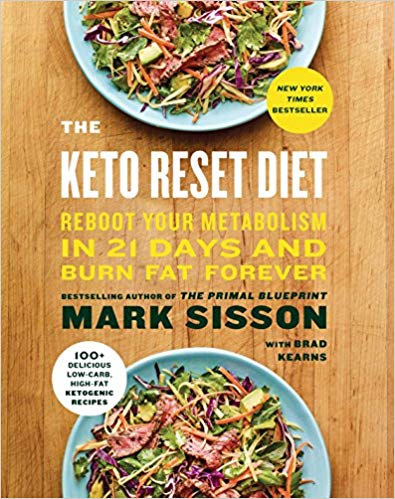What is a ketogenic diet?
The ketogenic, or “keto”, diet is a low-carbohydrate, high-fat diet that restricts carbohydrates in order to force the body to use fat for energy, a metabolic state known as ketosis.
The body primarily uses carbohydrates as fuel, but when those are restricted the body uses fat instead, which can lead to weight loss. This shift from using glucose to breaking down stored fat as energy can happen over a several days period when consuming 20g to 50g of carbohydrates daily.
There are several types of ketogenic diets:
- Standard ketogenic diet, which is very low-carbohydrate (5%), high-fat (75%) with moderate protein (20%)
- High-protein ketogenic, similar to the standard keto diet, but the ratio of macronutrients is closer to 5% carbs 60% fat, and 35% protein
- Cyclical ketogenic diet, which allows cycles of low-carb and high-carb days
- Targeted ketogenic diet, which permits carbohydrate intake surrounding workouts
- Ketotarian diet, which is a plant-based adaption of the diet that focuses on low-sugar fruit, low-starch vegetables and plant-based fats
The first two keto diets are the most common and the most researched, while the third and fourth ones are often used by body builders and professional athletes.
Where did the ketogenic diet originate?
The ketogenic diet was originally developed as a form of medical nutrition therapy for children suffering from seizure disorders.
Due to it’s neuroprotective effects, studies have shown this diet (when medically supervised) reduced seizures in children.
Studies on the effects of the general population following the ketogenic diet are mixed. Some show accelerated weight loss and improvements in blood sugar, while others show increase in cholesterol and an adverse effect on the gut microbiome.
However, long-term studies on how the ketogenic diet affects humans is not available. This could be in part due to the nature of the diet, as it is hard to maintain for very long periods of time.
Some of the foods permitted according to the ketogenic diet are:
- fruit that is low-sugar, such as avocados and raspberries, blackberries, and more
- vegetables that are low- to no-starch, such as asparagus, bok choy, broccoli, brussels sprouts, chard, collard greens, cucumbers, lettuces, mushrooms, spinach, etc.
- dairy, such as ghee and hard cheeses
- eggs
- meat, such as chicken/poultry, beef, pork, lamb, etc.
- seafood and shellfish such as halibut, salmon, tuna, shrimp, crab, etc.
- healthy fats such as nuts, seeds, avocado oil, coconut oil and olive oil
- dark chocolate (sugar-free)
Some of the foods not permitted according to the ketogenic diet are:
- fruit that is high-sugar, such as bananas and grapes
- vegetables that are high-starch, such as potatoes, parsnips and carrots
- gluten, from wheat, barley, rye
- grains, such as pasta, rice, quinoa and more
- sugar in all forms, including honey and maple
Sample keto menu for breakfast, lunch, dinner and dessert:
Breakfast
- Chia seed breakfast pudding with almonds and organic berries
- Frittata with spinach, scallions and dill, with smoked salmon on the side
Lunch
- Halibut with tamari-ginger glaze and vegetable fried cauliflower “rice”
- Grilled chicken and kale salad with brazil nut “parmesan”, avocado, hemp seeds and lemon vinaigrette
Dinner
- Turkey meatballs with zucchini “noodles” and pesto sauce
- Pan-grilled rib eye, sautéed mixed mushrooms and garlicky greens
Dessert
- Dark chocolate avocado mousse with dark chocolate shavings
- Mixed berries with coconut whipped cream, toasted coconut and macadamia nuts
More Resources
Looking for a good keto cookbook? Here are two of our favorites!
Want to see a visual guide to which foods you can and cannot eat when following the keto diet? Check out the Diet Doctor’s visual guide to keto foods.
Sources: https://www.healthline.com, https://www.health.harvard.edu, www.dietdoctor.com
If you find this diet interesting please see these related pages:


